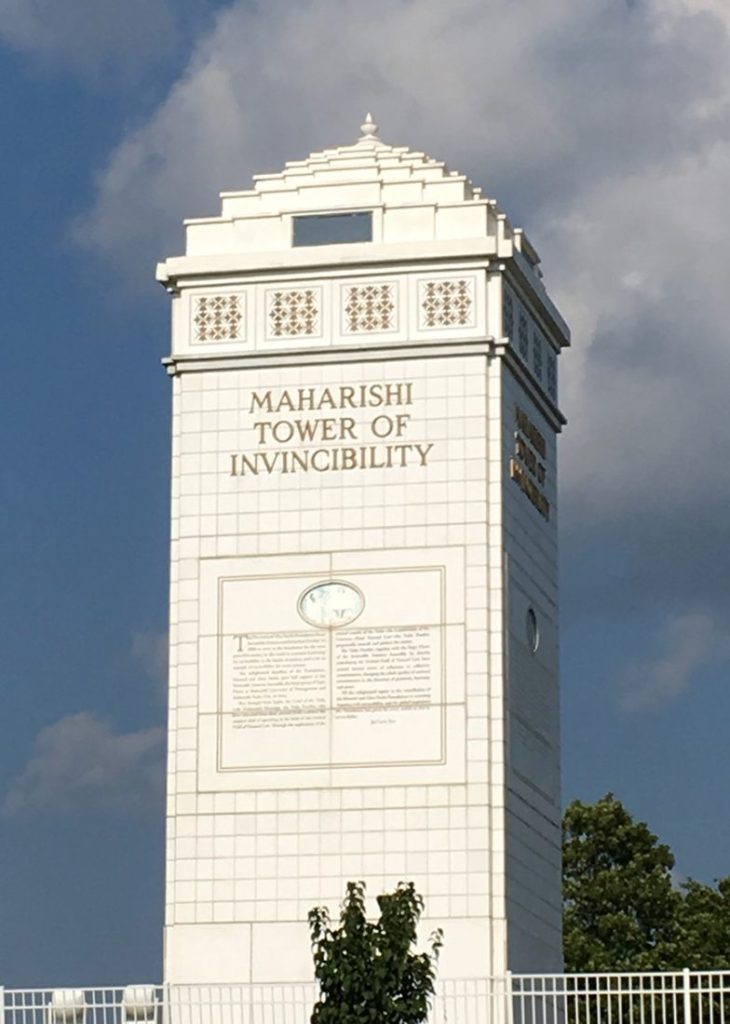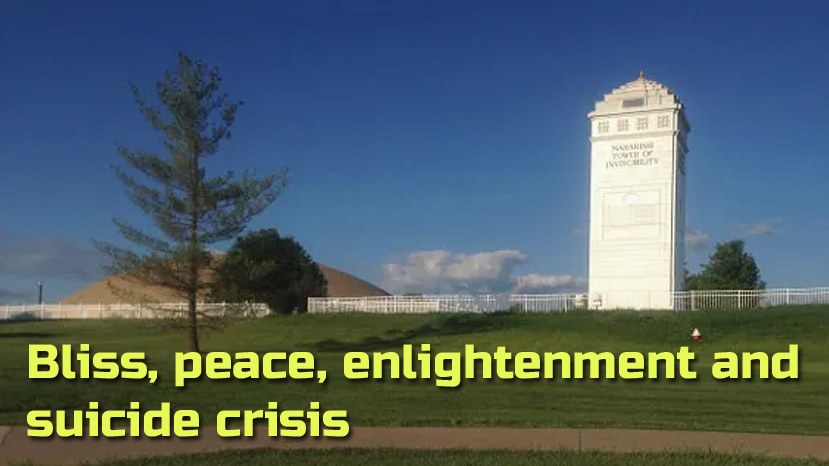In Fairfield, Iowa, a town known for its deep ties to Transcendental Meditation (TM) and Maharishi Mahesh Yogi’s vision of spiritual fulfillment, an undercurrent of mental health struggles is coming to light. Following a tragic wave of suicides, the community is wrestling with the complexities of acknowledging these issues within a culture rooted in ideals of peace, bliss, and enlightenment. While meditation remains a valued tool for many, residents and health professionals are beginning to question whether TM’s emphasis on happiness inadvertently silences those dealing with depression, bipolar disorder, and other serious mental illnesses. Through grassroots advocacy and the courage of those willing to break the silence, Fairfield is taking its first steps toward a more open dialogue on mental health, realizing that true healing may require a balance between holistic practices and modern psychiatric care, writes the littlevillagemag.com.
Living in a small town means feeling a close connection to nearly everyone around you. When several recent suicides occurred in Fairfield, Iowa, each loss felt deeply personal to me, whether it was a classmate, a childhood friend, a neighbor, or someone I’d just seen last weekend. Since mid-2008, about 20 suicides have been reported in Fairfield’s county. Four of those have occurred just since May this year. Iowa’s overall suicide rate has also been rising, from 11.7 per 100,000 people in 2010 to 14.4 in 2013, surpassing the national average.
At a recent event hosted by Fairfield Cares, a community organization, a soft-spoken but powerful woman shared her experience of surviving her own past suicide attempts. As she spoke, memories of my cousin – writes author Donna Cleveland – whom I never met, resurfaced. John, a former University of Iowa football player and a young father, ended his life at 21, not long after being diagnosed with schizophrenia in 1982. I wonder about the fear he must have felt, and how differently his life might have been if he had received the support he needed.
In September, Suicide Prevention Month, and just weeks after Robin Williams’ tragic death by suicide, groups like Fairfield Cares and media organizations have spotlighted America’s under-acknowledged suicide epidemic. This national crisis claims a life every 13.1 minutes, according to the CDC. While there’s no single cause, research shows that over 90% of suicides involve mental illnesses, such as depression, bipolar disorder, anxiety, or schizophrenia.
The stigma surrounding mental health struggles in the U.S. is a burden on those already suffering. But in Fairfield, where I grew up in a Transcendental Meditation (TM) community, this stigma is compounded, writes author Donna Cleveland. The city has a history of valuing Maharishi Mahesh Yogi’s idealistic vision: “The purpose of life is the expansion of happiness.” However, as I’ve grown older, I’ve realized that this pursuit of perfection can inadvertently create a culture that makes it harder for individuals to openly address real-life struggles.

Maharishi Tower of Invincibility in Fairfield, Iowa - credit: madisonroadtrip.comThis culture can add pressure to hide mental or physical health issues. For some, it might feel like admitting to these challenges threatens their inclusion in a close-knit community. Over the years, I’ve heard remarks that may seem innocuous to some but can be hurtful to those struggling, such as “Only those who want it get cancer,” or “Modern medicine is poison.”
Psychologist Dr. Scott Terry, who moved to Fairfield two years ago, has been working to change these perspectives on mental health. A meditator himself since childhood, Terry sees the value in meditation but warns against viewing it as a cure-all. In his practice, he’s seen individuals in the community confuse symptoms of manic episodes, often involving feelings of godliness, with enlightenment. He believes these misunderstandings can be dangerous and sometimes even fatal, as certain families choose to interpret suicides as acts of spiritual transcendence rather than address the mental health issues involved.
Fairfield’s conversations around mental health, while painful, are starting to shift. When a former student died by suicide in 2013 after battling depression, friends and community members created a Facebook group to start a discussion around the topic. Since then, more people in Fairfield have openly shared their personal battles with depression, anxiety, bipolar disorder, and even suicide attempts.
Despite these efforts, there’s still work to do in reducing the stigma associated with mental health in Fairfield’s TM community. Dr. Terry and Craig Pearson, Executive Vice President of Maharishi University of Management (MUM), founded the Fairfield Mental Health Alliance, which organized a free mental health seminar at the university this October, aimed at educating the community on mental health treatment and suicide prevention. They’re also developing a website to serve as a centralized platform for mental health resources in Fairfield.
Pearson has been a key advocate in this shift, helping draft a community statement to be shared with students this fall. This statement encourages people to seek professional support for mental health challenges while also acknowledging the potential value of medication for severe conditions. This marks a significant change in a community that has often leaned toward idealistic approaches to mental wellness.
For me, the most meaningful part of this shift has been the emphasis on authenticity and openness within Fairfield. This approach allows residents to talk not only about ideals but also about who they truly are and the challenges they face. It’s a reminder that, while meditation can be a powerful tool, it isn’t a solution for every issue, especially for serious mental health conditions. By creating space for honest dialogue, Fairfield is taking steps toward balancing a holistic lifestyle with modern psychiatric care, writes author Donna Cleveland.


